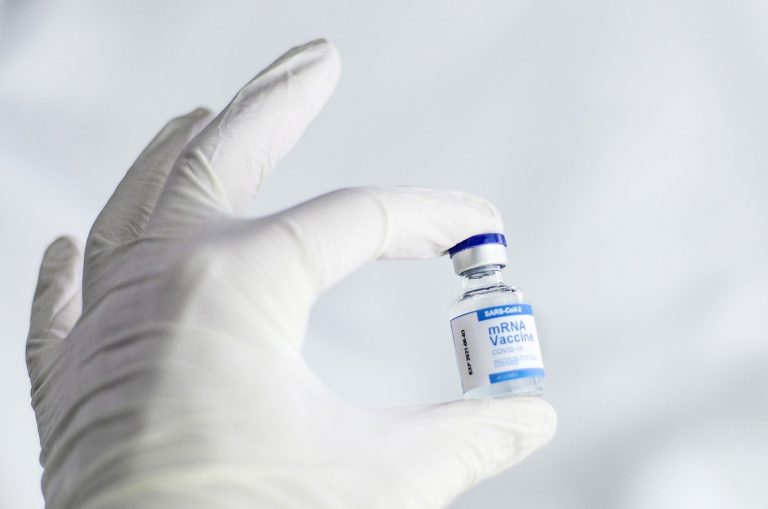The U.S. Food and Drug Administration (FDA) has revised the Pfizer-BioNTech and Moderna COVID-19 vaccine fact sheets to include warnings about the increased risks of pericarditis and myocarditis. Pericarditis is inflammation of the tissues surrounding the heart, while myocarditis is inflammation of the heart muscle. The decision arose from a June 23rd meeting of the U.S. Centers for Disease Control’s (CDC) Advisory Committee on Immunization Practices (ACIP).
In a June 25 statement, the FDA stated that the Fact Sheet for Healthcare Providers Administering Vaccine (Vaccination Providers) and the Fact Sheet for Recipients and Caregivers had been updated for both vaccines.
“The data presented at this meeting reinforced the FDA’s decision to revise the fact sheets and further informed the specific revisions. The warning in the Fact Sheets for Healthcare Providers Administering Vaccines notes that reports of adverse events suggest increased risks of myocarditis and pericarditis, particularly following the second dose and with onset of symptoms within a few days after vaccination,” the update stated.
In addition, the Fact Sheet for Recipients and Caregivers advises people to seek immediate medical help if they experience “chest pain, shortness of breath, or feelings of having a fast-beating, fluttering, or pounding heart after vaccination.”
Pfizer said in a statement that it was aware of the reports of pericarditis and myocarditis in vaccinated people, and asserted that the vaccine profile “remains positive.” Moderna reported that it was working with regulators on the issue.
Success
You are now signed up for our newsletter
Success
Check your email to complete sign up
At the June 23rd CDC meeting, Dr. Tom Shimabukuro, deputy director of the department’s Immunization Safety Office, stated that the rate of heart inflammation three weeks after the second shot of the vaccine among 12 to 39-years-olds was 12.6 cases per million.
“We’re observing this in the younger age groups, mainly in people in the teens and early 20s, and observing it more in males, compared to females… This effect largely kind of disappears once you get into these older age groups – individuals 50 and over,” Shimabukuro said.
According to Shimabukuro’s presentation, as of June 11, there were 267 reports of myocarditis and pericarditis in the CDC and FDA’s Vaccine Adverse Event Reporting System (VAERS) system after the first vaccine dose, 827 reports after the second dose, and 132 reports after an unknown dose. In total, 1,226 incidents were reported. The majority of cases involved the Pfizer-BioNTech vaccine.
Of the myocarditis and pericarditis cases, 66 percent after the first dose and 79 percent after the second dose occurred in males. The VAERS reporting rate among males aged 12 to 17 was 9.8 per million doses after the first dose and 66.7 per million doses after the second. Among those aged 18 to 24, the rates were 8.7 and 56.3. Among those aged 25 to 29, the figure dropped to 4.5 and 20.4.
“The post-second dose cases double from age 25 to 21, then double again in the 16-18 range. The younger you are, the higher the risk. HOW CAN WE JUSTIFY GIVING THIS TO ANYONE HEALTHY UNDER 25 – MUCH LESS 18?” Alex Berenson, author of “Tell Your Children: The Truth About Marijuana, Mental Illness, and Violence,” said in a tweet.
Between the emergency use authorization (EUA) of the vaccines in December 2020 and June 18, 2021, a total of 387,288 adverse event reports were submitted to VAERS following COVID-19 vaccination.
There have been 6,136 deaths, 21,806 hospitalizations, 1624 cases of anaphylaxis, 1,977 cases of Bell’s Palsy, 2,483 heart attacks, 1,644 cases of myocarditis or pericarditis, 1,776 cases of thrombocytopenia or low platelets, and 720 miscarriages or stillbirths reported after vaccine administration.
According to the CDC, more than 323 million COVID-19 vaccines have been administered in the United States, with 153 million people fully vaccinated. The CDC advisory committee plans to make the following recommendations:
- Individuals who had pericarditis before vaccination can receive any FDA-authorized COVID-19 vaccine. Those who develop pericarditis after their first mRNA vaccine dose can get the second shot after symptom resolution.
- People who have had myocarditis in the past can get the shot if their heart has recovered. Those who develop myocarditis after their first dose should defer the second dose of the mRNA vaccine until more information is known. However, they can still proceed with a second dose after recovery and after talking with their physician.
The notion of receiving a second dose even after displaying an adverse reaction has bewildered many healthcare providers. Usually, an adverse reaction is immediately placed on a patient’s allergy list, and the drug or treatment is avoided. An alternative treatment is instead offered to the patient.
Furthermore, according to the Association of American Physicians and Surgeons (AAPS), there is no long-term data available. “Benefits of mRNA products are believed to exceed risks, but there are uncertainties, especially in 12 to 15 year-olds… Do the math: If one in 10,000 get myocarditis, out of 300 million who get the needle in the arm, we could get 30,000 people, predominantly young men, with damaged hearts,” the AAPS press release states.
With reporting by Prakash Gogoi.
















